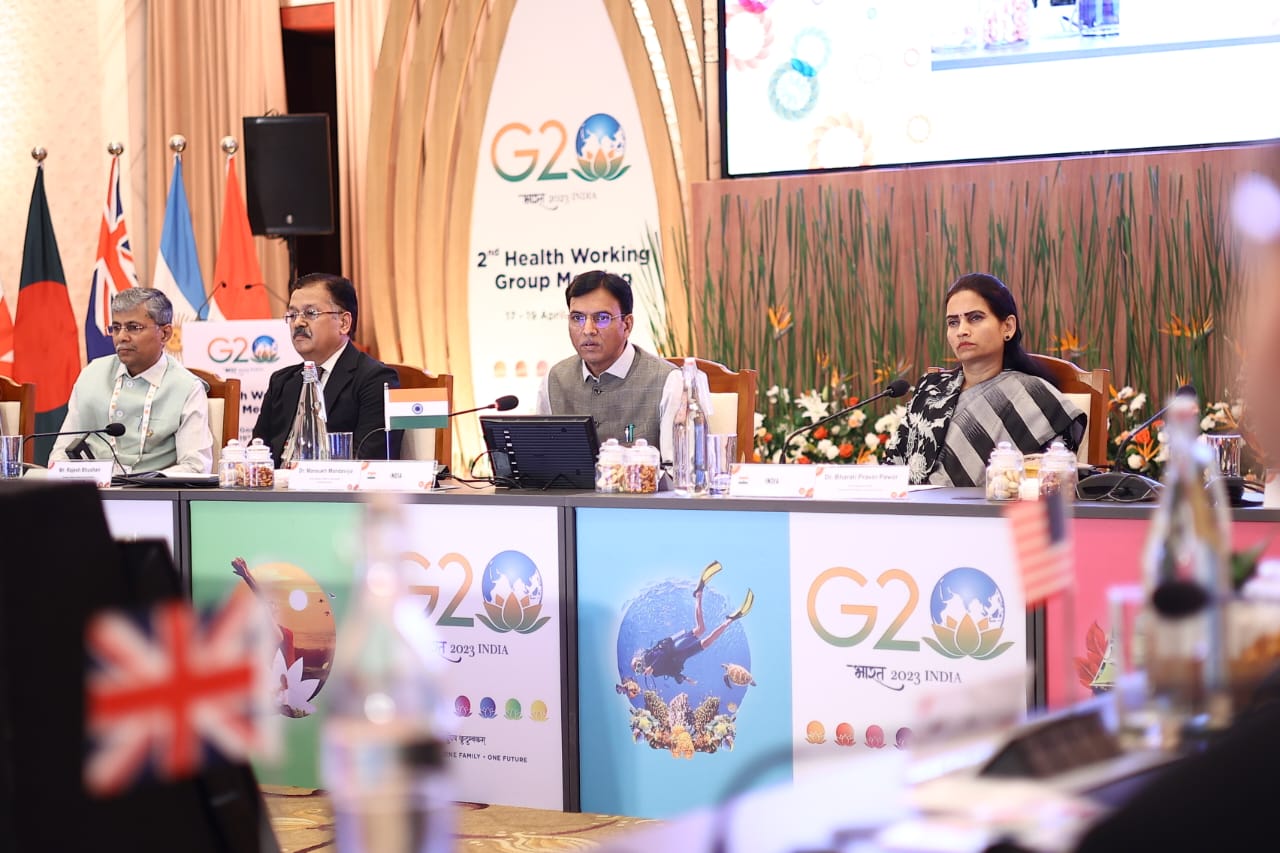Union Health Minister Mansukh Mandaviya on Thursday launched the ‘Advantage Health Care India Portal One Stop Digital Portal for Patient’ and ‘Workforce Mobility’ portal and said it is a significant step towards fulfilling India’s global responsibilities. He said India has always been at the forefront of healthcare innovation. Lauding Prime Minister Narendra Modi’s vision of achieving Universal Health Coverage by imbibing the notions of Sarvodaya and Antyodaya, the Health Minister stated that India has made significant contributions to health globally and has made a lot of progress in primary and digital healthcare. “Through these portals, we are offering a tangible solution to some of the most, pressing challenges in healthcare today,” he said.
“The launch of these two portals is not just a milestone for India, but a significant step towards fulfilling our global responsibilities. India has always been at the forefront of healthcare innovation,” he said.
WHO Director-General Dr Tedros Adhanom Ghebreyesus was among those present.
WHO’s first-ever Global Summit on Traditional Medicine was inaugurated as part of the G20 Health Minister’s Meeting in Gandhinagar on Thursday.
Elaborating on the Indian health system, Mandaviya said India today is supported by a workforce of 1.3 million Allopathic doctors, 8,00,000 AYUSH doctors and 3.4 million nurses, auxiliary nurses and midwives.
“Through this highly qualified and skilful workforce, India plans to contribute to an organised system of workforce mobility, wherein India’s healthcare professionals travel to different parts of the world, to serve the global community,’ he said.
Reiterating that health is perceived as a service in India, he highlighted that nation aspires to create a people-centric, value-based system of healthcare.
Mandaviya emphasized that medical value travel will enable greater knowledge-sharing, sustainable partnerships and increased synergies, contributing to building a stronger global health architecture, according to an official release.
“We strive to build a more inclusive and equitable world where healthcare knows no boundaries and where skilled healthcare professionals can make a difference wherever they are. Our collective efforts will be towards creating a healthcare ecosystem that embraces the voice of every nation, every citizen and every being,” he said.
Speaking on the occasion, AYUSH Minister Sarbananda Sonowal said India’s G20 Presidency ‘One Earth, One Family, One Future’ incorporates Medical Value Travel and health workforce mobility as an important facet to build resilient global healthcare systems.
“The preventive and promotive approach of our traditional health care systems has played a significant role in the modern age today, particularly when global health was afflicted in recent times.”
He underscored the importance of implementing harmonized and coordinated strategies of traditional medicine through effective governance at international, regional, and national levels.
Minister of State for Health Bharti Pravin Pawar said the concept of health needs a holistic approach and India has the unique advantage of offering traditional healthcare therapies or AYUSH treatments to medical value travellers from across the globe. “Integration of traditional medicine and modern medicine is an essential aspect of achieving affordable and accessible healthcare for all, especially in remote areas,” she said.
WHO chief said that Medical Value Travel can serve to complement countries in building their national capacities. Leveraging Medical Value Travel, countries can offer specialized resources and services that may not be available, affordable or accessible in other parts of the world.
He further added Digital Health is a great asset as it enables patients to access medical healthcare services via telemedicine at platforms such as Ayushman Bharat Health and Wellness Centres.
Digital Health bridges the gap of affordability rendering medical care to the innermost areas and to those patients who may not be able to afford the services.
The Union Minister also held bilateral meetings with European Union, Germany and Saudi Arabia. The bilateral meetings provided an opportunity to reflect on areas of collaboration and shared priorities in pursuit of a healthier tomorrow, the release said.
The bilateral meeting with the European Union focused on exploring areas of collaboration in fortifying healthcare systems and enhancing capacities for disease surveillance and capacity building with a particular focus on Ayurveda Telemedicine, clinical trials and research in India for EU-based pharmaceutical companies, Medical Value Travel, and potential joint collaborative ventures in medical education and research.






















